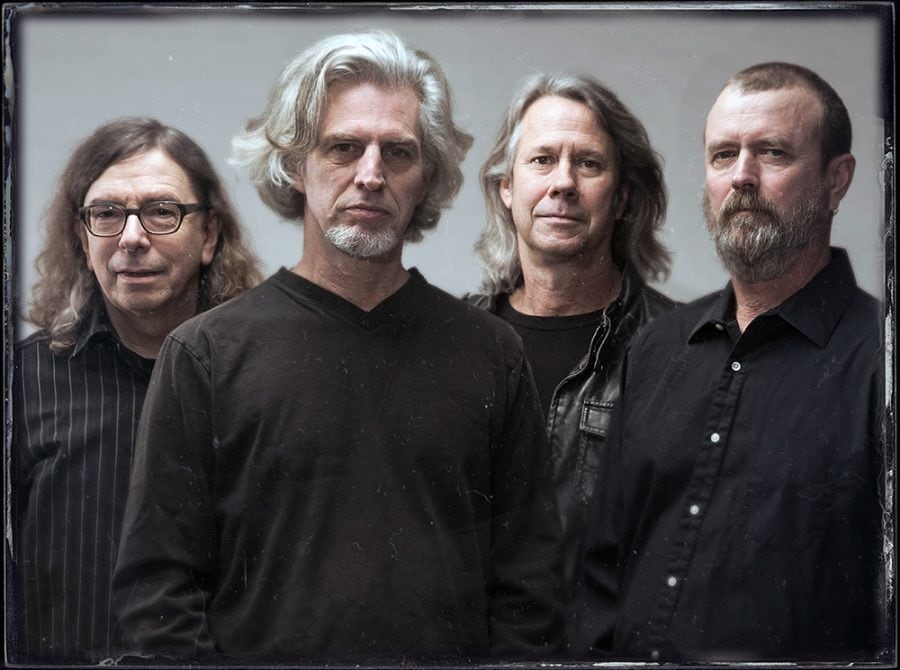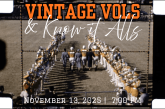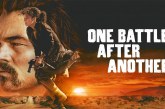Recommendations from the fringe

Editor’s note: In the aftermath of the unfortunate yet completely understandable and responsible decision to scrap this year’s iteration of Big Ears, the BLANK staff was left grasping at straws for ideas of content that could replace the pre-festival coverage that typically graces our cover each March. It was Bill Foster who suggested that we write about some of our unheralded favorites – music, movies, books and other things that might fly under the radar of most folks – in order to provide our readers with touchstones for exploring new entertainment options during this protracted period of self-isolation. To honor the man who came up with the concept, his are the first selections we are highlighting.
Books: Tibor Fischer

How to describe the works of Tibor Fischer? If Quentin Tarantino were a philosophy nerd who loved puns? If Douglas Adams were a lot smarter and liked to cuss?
First up is “The Thought Gang,” which begins with a fat, lazy, alcoholic Cambridge professor waking up in France naked, surrounded by stacks of kiddie porn and hearing the police beating down the door. It proceeds to him meeting a one-armed tough guy and then to them robbing banks together while adhering to a philosophical motif. (“Positivist. I’m positive I want to rob this bank.”) Incredibly erudite, full of unusual language, puns, words that start with the letter z and the occasional tongue-nailing, it is one of my favorite books of all time.
“Under the Frog” starts off with a sentence along the lines of “Very few people have traveled the length of Hungary naked on a train” and gets funnier as it tells the tale of a Hungarian basketball team during the Communist era. “The Collector Collector” is told from the point of view of a 500-year-old Sumerian pot. “Voyage to the End of the Room” is about a former Barcelona sex worker who invents some software, becomes fantastically rich and doesn’t leave her apartment for decades after.
“Good to be God” begins with a sad sack who is in such bad shape that the burglar who robs his house leaves him a note telling him to pull himself together. It devolves into a fury of invention including the Church of the Heavily Armed Christ, a DJ hitman and a spliff-rolling, machine-gun-toting monkey. The first two books mentioned are classics of literature that are not to be missed. Other works are more divisive and depend more on your taste.
Music: The Rainmakers

The Rainmakers are the great band of my life that remains unknown to most poeple. Their first album came out in 1986 and blew me away. It got a little notice; Newsweek called it the best debut of the year, Stephen King included them in two books and Rolling Stone gave it four stars. However, they never really made it anywhere outside Norway, where they still are huge. I saw them open for Kansas that year in Memphis and thought they were fantastic live. They had two more great albums before taking a long hiatus.
The first three albums, “The Rainmakers,” “Tornado” and “The Good News and the Bad News,” are essential listening, chock full of clever wordplay, indelible melodies and solid three-verses-and-a-bridge songcraft. Melodic with excellent musicianship and a singer with a distinctive sound, I can’t say enough good things about them. Favorite songs include “Long Gone Long,” “The One That Got Away,” “Hoo Dee Hoo,” “Tornado of Love,” “Downstream,” “The Wages of Sin” … I could go on forever.
After their hiatus, they made four more albums that all are worth hearing, but one in particular is worth mentioning. “Skin” is a concept album about the link between pornography and violence against women. It broke up the band again, as longtime guitarist Steve Phillips left over concerns about the lyrical content. It’s one of the bravest albums I have ever heard: rocking, intelligent and brutally honest.
Films: Zhang Yimou

If you have heard of Zhang Yimou, it’s probably for “Hero,” the fantastically arty, spectacularly colored wuxia tale of Nameless and three assassins. It’s a brilliant film despite its problematic message. (It’s often seen as Zhang’s apology for the Chinese government, as it seems to support authoritarianism and the message that the system is bigger than the individual.) In any case, his earlier work is unmissable for anyone into foreign movies, Chinese history/art or simply great filmmaking.
Seven of the director’s films star Gong Li, one of the finest actresses to ever live, and three were nominated for Academy Awards. His films are incredibly distinctive in their use of color, their attention to detail and their tales of ordinary people caught up in the great moments of Chinese history. “Red Sorghum,” his debut, tells the tale of a young rural woman working in a distillery. “Ju Dou,” his first great film, is a tale of a young woman sold into marriage to a cruel cloth dyer
“Raise the Red Lantern” is one of my favorite films of all time and the one to start with. It tells the tale of a concubine in a wealthy compound in the warlord era of 1920s China. “To Live” also is essential viewing, telling the story of a single family through the Chinese Civil War, the Great Leap Forward and the Cultural Revolution. It is simply heartbreaking, and it’s a movie that has affected me as much as any single film I have ever seen.
“Shanghai Triad” is a gangster film, lighter but still excellent. There are about a dozen others that are well worth watching. Don’t miss them. Except … well, I didn’t mention “The Great Wall,” the only movie he did with an American star. There is probably a reason I didn’t mention it.







